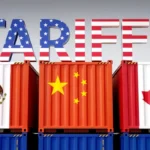Latest Posts
September 11, 2025 Continuing Education in Global Logistics: A Powerful Catalyst for Career Growth
June 30, 2025
Continuing Education in Global Logistics: A Powerful Catalyst for Career Growth
June 30, 2025
 Tariffs: The Upside
June 30, 2025
Tariffs: The Upside
June 30, 2025
 Exploring the Role of Intrapreneurs: Innovation Drivers Within Organizations
Exploring the Role of Intrapreneurs: Innovation Drivers Within Organizations
Newsletter
Sign up to receive email updates from the Freightpath.
"*" indicates required fields
The Transformative Impact of AI on Hiring in Global Supply Chain Management
June 12, 2024
In the rapidly evolving landscape of global supply chain management, the integration of artificial intelligence (AI) is poised to revolutionize various aspects of operations. One significant area where AI is making a profound impact is in the realm of hiring. As businesses strive for efficiency, agility, and competitive advantage, AI-driven hiring processes offer innovative solutions to streamline recruitment, optimize talent acquisition, and enhance workforce productivity. This article explores the transformative influence of AI on hiring practices within the context of global supply chain management.
Understanding Global Supply Chain Management: Global supply chain management encompasses the complex network of interconnected processes involved in the production, procurement, logistics, and distribution of goods and services across international borders. It involves coordinating the flow of materials, information, and finances from suppliers to manufacturers, distributors, retailers, and ultimately to end consumers. Effective supply chain management is vital for businesses to meet customer demands, minimize costs, mitigate risks, and maintain a competitive edge in the global marketplace.
Challenges in Hiring for Global Supply Chain Management: Traditional hiring processes in the realm of global supply chain management often face various challenges. These include:
- Talent Scarcity: The specialized skills and expertise required for roles within supply chain management can be in short supply, leading to talent shortages and fierce competition for qualified candidates.
- Geographic Constraints: Managing a global supply chain necessitates recruiting talent from diverse geographic locations, presenting logistical challenges and cultural considerations in the hiring process.
- Skill Mismatch: Identifying candidates with the right combination of technical proficiency, industry knowledge, and soft skills relevant to supply chain roles can be a daunting task for recruiters.
- Time and Cost Constraints: Traditional hiring methods involving manual resume screening, interviews, and candidate assessments are time-consuming and resource-intensive, leading to delays and increased recruitment costs.
- Rapid Technological Advancements: The evolving nature of technology within supply chain management requires hiring professionals who can adapt to new tools, software, and methodologies, posing a challenge for recruiters to keep pace with changing skill requirements.
The Role of AI in Transforming Hiring Practices: Artificial intelligence offers a plethora of innovative solutions to address the challenges and revolutionize hiring practices within the global supply chain management domain. Here’s how AI is reshaping the recruitment landscape:
- Automated Resume Screening: AI-powered applicant tracking systems (ATS) leverage natural language processing (NLP) algorithms to analyze resumes, identify relevant skills, qualifications, and experience, and rank candidates based on their suitability for supply chain roles. This automated screening process accelerates candidate shortlisting, reduces bias, and enhances the efficiency of talent acquisition.
- Predictive Analytics for Talent Sourcing: AI algorithms analyze vast volumes of data from multiple sources, including job boards, professional networks, and social media platforms, to predict future talent trends, anticipate skill demands, and identify potential candidates who match specific supply chain job requirements. By leveraging predictive analytics, recruiters can proactively source talent and build talent pipelines to meet evolving organizational needs.
- Virtual Assessments and Skills Testing: AI-powered assessment tools and simulations enable recruiters to evaluate candidates’ technical proficiency, problem-solving abilities, and decision-making skills relevant to supply chain management through virtual scenarios and real-world simulations. These assessments provide valuable insights into candidates’ capabilities, ensuring a more accurate and comprehensive evaluation process.
- Personalized Candidate Experience: AI-driven chatbots and virtual assistants engage with candidates throughout the recruitment process, providing personalized communication, answering queries, and guiding candidates through various stages, from application submission to onboarding. This enhances the candidate experience, improves engagement, and strengthens employer branding in the competitive talent market.
- Bias Mitigation and Diversity Enhancement: AI algorithms are designed to minimize unconscious bias in hiring decisions by focusing on objective criteria and performance indicators rather than subjective factors such as gender, ethnicity, or educational background. By promoting fairness and inclusivity, AI helps organizations build diverse and inclusive supply chain teams, fostering innovation and creativity.
- Continuous Learning and Development: AI-powered learning platforms offer personalized training modules, courses, and resources tailored to employees’ skill gaps, career aspirations, and job roles within the supply chain. By facilitating continuous learning and development, AI empowers employees to acquire new skills, adapt to technological advancements, and drive organizational growth and competitiveness.
- Talent Retention and Succession Planning: AI analytics identify patterns and trends in employee performance, engagement, and retention, enabling organizations to proactively identify high-potential talent, address retention risks, and develop succession plans for key supply chain roles. By nurturing talent internally and promoting career advancement opportunities, AI contributes to long-term organizational sustainability and talent retention.
Case Studies and Real-World Applications: Several leading organizations across industries are leveraging AI to optimize hiring practices and enhance talent acquisition within global supply chain management. For example:
- Amazon: Amazon utilizes AI-driven algorithms to analyze candidate data, assess skills, and predict job fit for supply chain roles. By automating resume screening and optimizing candidate matching, Amazon streamlines recruitment processes, reduces time-to-hire, and improves the quality of hires within its extensive global supply chain operations.
- Walmart: Walmart employs AI-powered chatbots to engage with candidates, answer queries, and provide real-time updates on job opportunities and application status. By delivering personalized candidate experiences and enhancing communication throughout the recruitment journey, Walmart enhances candidate engagement and strengthens its employer brand in the competitive retail supply chain sector.
- DHL: DHL harnesses AI-driven predictive analytics to forecast talent demand, identify skill gaps, and develop targeted recruitment strategies for its global supply chain workforce. By leveraging data-driven insights, DHL optimizes workforce planning, ensures talent alignment with business objectives, and sustains operational excellence across its extensive logistics network.
Challenges and Ethical Considerations: While AI offers significant benefits in revolutionizing hiring practices for global supply chain management, it also presents challenges and ethical considerations that require careful consideration:
- Data Privacy and Security: AI-driven recruitment tools rely on vast amounts of candidate data, raising concerns about data privacy, confidentiality, and compliance with regulations such as GDPR and CCPA. Organizations must implement robust data protection measures and ensure transparency in data usage to maintain trust and integrity in the recruitment process.
- Algorithmic Bias and Fairness: AI algorithms may inadvertently perpetuate bias and discrimination based on factors such as gender, race, or socioeconomic background if not properly designed and calibrated. Organizations must regularly audit AI systems, mitigate bias through algorithmic fairness techniques, and foster diversity and inclusion in hiring practices to promote equity and social responsibility.
- Human Oversight and Accountability: While AI automates many aspects of the hiring process, human oversight remains essential to ensure ethical decision-making, mitigate algorithmic errors, and address candidate concerns or grievances. Organizations must establish clear guidelines, governance frameworks, and accountability mechanisms to uphold ethical standards and mitigate potential risks associated with AI-driven recruitment.
In conclusion, the integration of artificial intelligence is revolutionizing hiring practices within the global supply chain management domain, offering innovative solutions to address talent scarcity, enhance efficiency, and drive organizational success. By leveraging AI-powered tools and analytics, organizations can optimize talent acquisition, foster diversity and inclusion, and strengthen workforce agility and resilience in the face of evolving market dynamics. However, to maximize the benefits of AI in recruitment, organizations must navigate ethical considerations, mitigate bias, and prioritize transparency, accountability, and human-centric principles in their AI-driven hiring strategies. Embracing AI as a strategic enabler of talent management, organizations can unlock new opportunities for innovation, growth, and competitive advantage in the dynamic landscape of the global supply chain.
CEO @ FreightPath Inc. | CSCMP Corporate Member | We Deploy The Industry’s Most Comprehensive Global Supply Chain Curriculum | 500+ Course Library | gofreightpath.com/course-catalog
